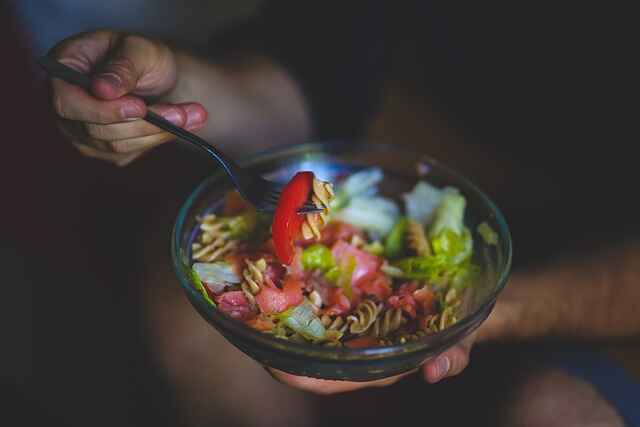What is constipation?
Constipation is a condition in which bowel movements are painful or infrequent. It happens when your bowel movements become less frequent and your faeces become more difficult to pass. It usually happens as a result of a change in food or routine, or from a lack of fibre. If you have significant pain, blood in your stool, or constipation that lasts more than three weeks, contact your doctor.
Also, Read Complete Guide on Dementia: Causes, Symptoms, and Care Tips
What causes Constipation?
An excessive amount of water is absorbed by the colon, which leads to hard, dry faeces. Normally, water is absorbed by the colon (sometimes referred to as the large intestine) as food passes through it, generating stool (waste products). The stool is subsequently propelled towards the rectum by muscle contractions, and by the time it gets there, most of the water has been absorbed, leaving the faeces solid.
Too much water is absorbed when the faeces pass through the colon too slowly as a result of the colon’s slow or sluggish muscle contractions.
Symptoms
- Passing less than three stools a week
- Having knotty or difficult stools
- Straining to have bowel movements
- Feeling as even though there’s a blockage in your rectum that anticipates bowel movements
- Feeling as even though you can’t purge the stool from your rectum
- Needing help to purge your rectum, such as utilising your hands to press on your midriff and employing a finger to expel stool from your rectum
Risk Factors
- Changes in your diet or activity
- Not sufficient water or fibre in your diet
- Eating a part of dairy products
- Not being active
- Resisting the encouragement to poop
- Stress
- Overuse of laxatives
- Some medicines (particularly solid torment drugs such as opiates, antidepressants, and press pills)
- Antacid solutions that have calcium or aluminium
- Eating disorders
- Irritable bowel syndrome
- Pregnancy
- Problems with the nerves and muscles in your stomach-related system
- Colon cancer
- Neurological conditions such as Parkinson’s illness or different sclerosis
- An underactive thyroid (called hypothyroidism)
- Excess calcium in your blood (hypercalcemia) due to overactive parathyroid organs, drugs, cancer (lung, breast, different myeloma), or other causes
Also, Read Thyroid Cancer: Symptoms, Causes, Risk Factors, Diagnosis, Prevention, Facts

Diagnosis
Your doctor will take a medical history and perform a physical exam, which may involve a mild rectal exam with a gloved and lubricated finger in some situations.
Since drug interactions are a major cause of constipation, the medical history will include information about any medications or drugs you are currently taking. Your doctor will also inquire about your level of physical activity as well as your diet to make sure you are getting enough fibre and water. Constipation can also result from a lack of any of these.
They may also recommend several standard blood tests (to check for hypothyroidism, for example), as well as urine and stool tests, depending on the intensity and duration of constipation as well as any other accompanying symptoms. A colonoscopy, a sigmoidoscopy, and in uncommon circumstances, imaging tests, are some of the other diagnostic procedures.
Treatment
It may be beneficial to make lifestyle adjustments including drinking more water and juice, exercising frequently, and allotting enough time each day for bowel motions.
Your doctor might advise a fibre supplement, stool softeners, or other medicine — either over-the-counter or prescription — to loosen things up again if lifestyle modifications aren’t working. Laxatives are one option, but it’s preferable to use them under your doctor’s supervision because using them frequently can make it difficult to have a bowel movement on your own.
Other non-prescription options include:
- Fibre supplements, such as psyllium (Metamucil)
- Polyethene glycol 3350 (Miralax) osmotic agents
- Stool softeners, such as docusate (Colace)
- Lubricants (like mineral oils)
- Stimulants, such as Correctol
Additionally, there are prescription drugs that can be used to relieve constipation. Your physician might decide to recommend one of the following:
- The medication lubiprostone (Amitiza), which is recommended to raise fluid in your digestive tract and increase bowel frequency
- Medications that promote regular bowel movements include plecanatide
- Linaclotide (Linzess); are frequently used to treat chronic constipation brought on by IBS
- Prucalopride, which helps your colon if you have chronic constipation that has no known cause.
- Chronic constipation induced by anorectal dysfunction is treated with biofeedback. This treatment retrains the muscles that control bowel movement release.
- Complementary and alternative therapies
Diet
- Drink more than two to four glasses of water per day. Avoid caffeine-containing beverages and alcohol, which can dehydrate you. Avoid juice and other high-sugar beverages as well.
- Avoid eating processed meats, fried foods, and refined carbohydrates such as white bread, spaghetti, and potatoes. It is OK to consume lean meats such as poultry and low-fat dairy products.
- Include fruits and vegetables, whole grains, and other fibre-rich items in your regular diet. Reduce your consumption of high-fat meals like meat, eggs, and cheese.
- Consume prunes, bran cereal, and other high-fibre fruits and vegetables such as oranges, pineapples, berries, mangos, avocados, and papaya.
- Keep a food book and identify the things that cause constipation

Care Tips
- Get active and work out.
- Check your toilet-sitting technique. Pooping may be made simpler by squatting, leaning back, or raising your feet.
- Supplement your diet with an over-the-counter fibre supplement (such as Metamucil®, MiraLAX®, Citrucel®, or Benefiber®). Start gradually with these.
- Take a very small over-the-counter laxative or stool softener (such as docusate) if necessary. Other treatments include laxatives with stimulants and mineral oil enemas. There are a lot of laxative options. To make a decision, seek advice from your chemist or medical professional. Harming laxatives can exacerbate your symptoms.
- While trying to clear your bowels, avoid reading, using your phone, or using any other devices.
- Avoid resisting the impulse to use the loo. It will eventually stop telling your brain to relax and let the poop out by blocking the signal from your colon.





